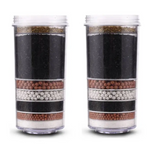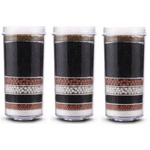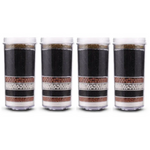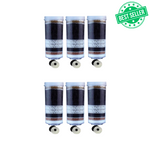You have no items in your shopping cart.
Many individuals are searching for various means of defending themselves against the possibility of sickness in such times of uncertainty. One of these methods is water filters, and one frequently asked question about filters is whether or not they aid in disease prevention.
The simple answer is that certain technologies, including ozonation, UV light, or reverse osmosis, can filter water for various pollutants, including bacteria and viruses. Since a water filter needs to have a particle size of 0.01 micrometres to capture viruses, portable and cheaper water filters like jugs and bottles are typically ineffective.
The good news is that current research suggests that our water supply is unlikely to become infected by the novel coronavirus. There are no records of this happening, and experts consider the likelihood of an infection by drinking water low.
In the sections that follow, let's examine this in more detail.
WATER FILTER
A water filter removes your water supply's pollutants. Using a water filter is a simple and efficient method for ensuring the water is free of dangerous toxins. Your water supply is clean and safe thanks to water filters, which utilise various technologies to remove pollutants and toxins. Many of these water filter systems are inexpensive and simple to set up.
WATER FILTERS AND VIRUSES
As we previously mentioned, a water filter must have small pores (approximately 0.01 micrometres) to collect viruses and screen them out of the water successfully. Many common filters do not meet this criterion, which means that any virus could still get past.
Water filters do, however, provide clean drinking water as a bonus. As we all know, maintaining appropriate hydration is one of the best methods to keep your body healthy and ready to fight off sickness.
Additionally, there are numerous health advantages to treating your water with an alkaline water filter. It implies that while they can't promise that your water is fully coronavirus-free, they significantly increase your chances of staying healthy in the long run.
COVID-19 IN OUR WATER SUPPLY
Again, there is no evidence that the coronavirus has contaminated our water supplies. The CDC affirms that the disease is still predominantly spread through physical contact with an infected individual and that there's no evidence to indicate otherwise.
We advise bringing your supply of filtered water merely to be safe if you'd like to be certain. When traveling away from home, be sure to pack your supply of clean drinking water and refrain from sharing it with others. The likelihood of the illness spreading will be reduced as a result.
You can go one step further and boil your water to eradicate potential pathogens. You only need to add your water to a big pot and wait for it to come to a roaring boil. Once it has cooled, transfer it to a bottle after letting it continue to boil for at least a minute.
HOW DO VIRUSES GET INTO YOUR WATER SUPPLY?

Viruses can enter the water when water is polluted by human or animal waste such as faeces or urine. The risk is increased by a malfunctioning sewage system, filthy stormwater runoff, and floods. Water from wells and untreated sources, such as rivers and lakes, is prone to contamination. The lack of access to safe water causes viral epidemics in many underdeveloped countries, and all unclean water sources are susceptible to viral contamination.
Even a public water source, though, carries some risk. Municipal disinfection procedures could break down in the case of a flood or other natural disaster, leaving your water supply vulnerable to viruses and other harmful bacteria. Since they can't guarantee the safety of your water supply, your water provider will issue a boil water advisory if the disinfection procedure fails.
MORE WAYS FILTERED WATER CAN PREVENT DISEASES
Waterborne Diseases
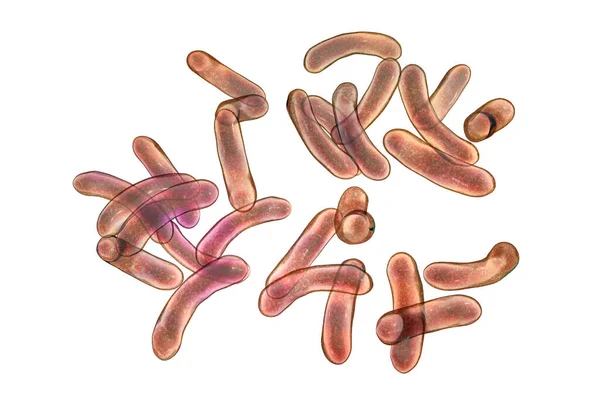
Drinking contaminated water poses a risk to your health and can also be fatal. 3.6% of daily deaths are thought to be caused by waterborne illnesses. Everyone is susceptible to waterborne diseases, as we all know. However, this primarily affects people who live in rural areas, where typhoid, giardiasis, cholera, amoebic infections, and hepatitis are common. Babies, senior citizens, smaller children, persons with diabetes, heart disorders, kidney issues, and chronic diseases are all impacted by drinking polluted water. The water filtration procedure improves the elimination of the microorganisms that cause waterborne illnesses.
Specific Cancer Infections
Cancer is brought on by contaminated water, say researchers. You could tend to believe that your tap water is safe even when it contains heavy metals and dangerous chemicals. Heavy elements like lead, aluminium, mercury, iron, fluorine, and chromium are mostly present in unfiltered water. Long-term consumption of water containing these metals increases the risk of developing cancer because of toxin buildup. Up to 99% of the chlorine in water linked to cancer is removed through filtration. Filtering water will undoubtedly give you a refreshing drink and protect you from harmful impurities.
Harmful Bacteria
Water-related illnesses are frequently contracted and are caused by harmful microorganisms. By drinking bacteria-free filtered water, your health should remain your top priority. Hepatitis A, Salmonella, and cryptosporidium are some toxic bacteria that can be discovered in the water. According to experts, strict water surveillance is essential for preventing waterborne illnesses and enhancing the quality of life.
WAYS FILTERED WATER CAN HELP BOOST YOUR HEALTH
Healthy to Drink
Numerous dangerous toxins and impurities can be found in the water that comes out of your faucet. Even though the government controls tap water quality, they cannot test for all possible contaminants.
Even though the water treatment center analyses tap water to be free of contaminants, there are still several ways for toxins to enter your home through the pipes. Having a water filter at your residence lowers the possibility of consuming tainted water, greatly enhancing your health.
Better Smell and Taste
Your tap water tastes and smells better, thanks to water filters. Installing a water filter may lessen the number of bacteria and chlorine that cause the water to smell bad.
Healthier Option Compared to Bottled Water
Most people believe that bottled water is a healthier option than tap water. Studies indicate that is not typically the case. Bottled water is frequently only obtained from much of the same pollutants as tap water. The FDA, which oversees bottled water quality, has relatively lenient reporting requirements regarding informing you of the contents of your water.
Plastic bottles themselves have negative effects. Your drinking water may get contaminated with contaminants, such as BPA, an industrial chemical linked to cancer. Because drinking filtered water ensures you are not getting BPAs or any other toxins that might be present in untreated tap water, it is a healthier option than drinking bottled water.
Earth-Friendly
Did you know that in the Pacific Ocean, a floating island of plastic spans a region of roughly 5.8 million square miles? In Australia, 1,500 water bottles are drunk every second, and billions of plastic bottles are thrown away worldwide daily. Fish consume this plastic, we eat the fish, and then it ends up inside of us. It never breaks down, which causes them to accumulate in landfills and, regrettably, wind up in the ocean.
Humans cannot be healthy if bad conditions surround them. Filtered water helps keep our environment healthy by reducing the number of discarded plastic bottles used.
Motivates You to Stay Hydrated
Water improves your energy levels, prevents headaches, boosts brain function, lubricates your joints, regulates your body temperature, and protects your kidneys from damage. It also assists in maintaining blood pressure, aids digestion, aids in weight loss and flushes out waste from your body. It also promotes cardiovascular health. You might feel more secure remaining hydrated if you know your filtered water is pure and contaminant-free.
FREQUENTLY ASKED QUESTIONS ABOUT WATER FILTERS AND VIRUSES
Do viruses die when water is boiled?
Yes, viruses are killed by boiling water. If you are at the height of 6,500 feet or higher, heat your water for three minutes after bringing it to a full boil for one minute. Boiling drinking water will effectively inactivate viruses, germs, parasites, and other harmful pathogens if there is a boil water warning or if you must consume water from an untreated source, such as a creek, when camping.
Do water filters remove viruses?
Water filters cannot adequately remove viruses. Since they are too tiny, viruses cannot be caught in filters, apart from ultrafiltration. Even ultrafiltration needs to be employed with another water filtration system.
Is COVID-19 water-transmissible?
No, there is no evidence to suggest that COVID-19 travels via water at this time. There is no proof that anyone has acquired COVID-19 from drinking water, untreated water, or wastewater, based on the Centers for Disease Control (CDC). It is instead spread through air or skin contact.
DRINK FILTERED WATER TO HELP YOU STAY AWAY FROM SERIOUS DISEASES
We know that many of us are going through frightening times right now, making it more challenging to manage illness now. For this reason, we advise you to take all necessary safety measures to protect your health and wellbeing.
Do not forget to drink pure, filtered alkaline water to stay hydrated. Doing this can ensure that your drinking water is healthy for you and safe.
Visit our site immediately to buy an alkaline water filter or filtered water cooler. We offer a wide variety of products to consumers in Australia, and we'd be pleased to assist you in securing your family's health.
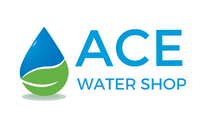
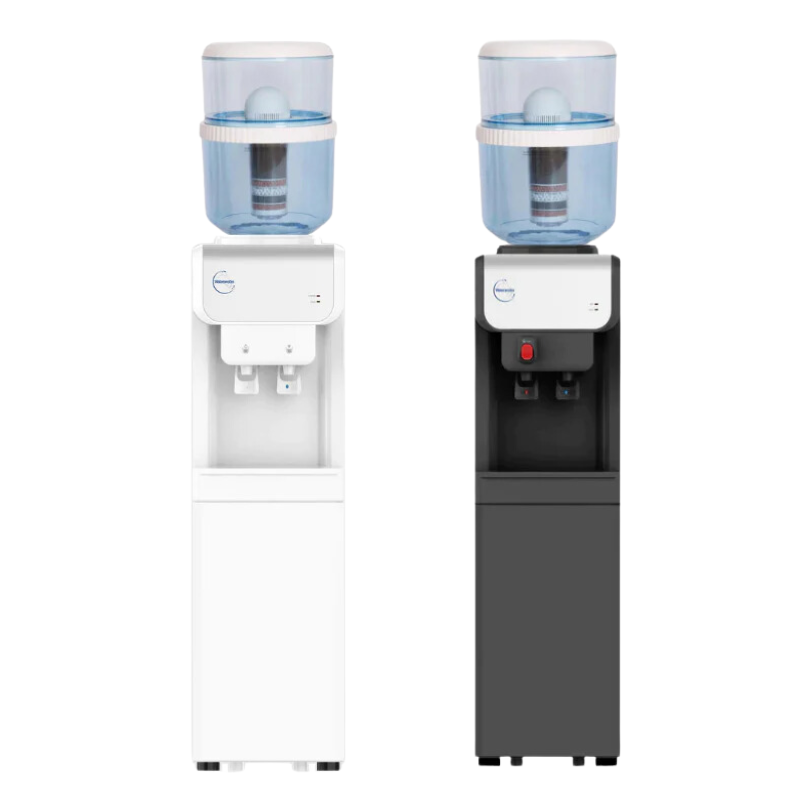

![550+ Coronavirus Pictures [HD] | Download Free Images on Unsplash](https://media.istockphoto.com/photos/corona-virus-mutation-picture-id1296140220?b=1&k=20&m=1296140220&s=170667a&w=0&h=4I7Vj8XoWDZby_c6VqQDBG0FKbxwfe8FQu-YaFe514Q=)


